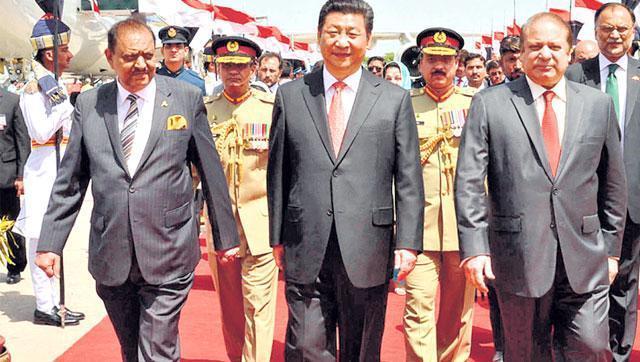Miss Alone
Prime VIP

Pakistan’s much publicised $46 billion economic corridor with China has run into rough weather, with Beijing expressing reservations over the development of the route across parts of Kashmir claimed by India.
The army has backed the civilian government on the China-Pakistan Economic Corridor (CPEC) project, but opposition parties have expressed reservations over its route and frequent changes being made to it.
There are several legal issues on which the Chinese have expressed reservations, including the development of the route through the Gilgit-Baltistan region because it is seen as disputed territory with India.
Gilgit-Baltistan or the Northern Areas, which has been in dispute since the Partition, is claimed by India. The Chinese have expressed concerns about the legality of any work undertaken across territory that is the subject of an international dispute.
A senior Chinese official told the Pakistani media that “China cannot afford to invest billions of dollars on a road that passes through a disputed territory”.
Opposition parties have threatened protests if Prime Minister Nawaz Sharif’s government ignores smaller provinces in favour of his home province of Punjab for the location of projects.
The Chinese government’s patience has apparently been exhausted and a statement from the Chinese embassy in Islamabad, which broke its silence in an unusual move, shed light on Beijing’s frustration at roadblocks placed by different quarters in Pakistan.
The Chinese embassy asked all quarters to resolve their differences. “China hopes that the relevant parties in Pakistan could strengthen communication and coordination on the CPEC to create favourable conditions for the project,” the embassy said in a statement.
Asked to comment on recent developments linked to the project, the embassy’s spokesperson said, “The CPEC is the consensus reached between China and Pakistan, and has won popular support from the two peoples. The CPEC faces Pakistan as a whole, and will bring development and benefits to the people of Pakistan.”
But opposition parties are not impressed. Pakistan Tehreek-e-Insaf leader Shah Mehmood Qureshi said his party had given an assurance that it will not do any politics on the project. “But we have reasonable doubts about the federal government. The PML-N government is not taking us into confidence on many issues,” he said.
The strongest opponent to the project is the government of Khyber-Pakhtunkhwa province, whose chief minister Pervez Khattak said on Monday the prime minister needs to clear the air on commitments made on the western route during an all parties conference (APC).
The Khyber-Paktunkhwa government will make one last effort for reconciliation on the CPEC in a proposed meeting with Prime Minister Sharif “before taking any extreme measures”, he said.
There are complaints about lack of transparency in the award of contracts and observers say it is unclear which projects will go ahead and which have been shelved.
Local labour leaders have expressed reservations over a decision by Chinese contractors to employ Chinese nationals at construction sites. A report by the Pakistan Labour Institute said many of these Chinese workers are members of the People’s Liberation Army. Pakistani officials have not commented on these allegations.
